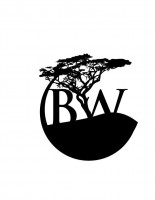
In 1960 the estimated population of chimpanzees was estimated at around one million individuals. Today the estimates have been dramatically reduced to 172,000 to 300,000 remaining, a decline of on the scale of 70-83%. Roughly 40% of this population is living within the Democratic Republic of Congo (DRC), an area where conservation efforts are greatly limited because its dangerous, war-torn conditions. The fact that a large portion of the chimp population inhabits the DRC makes this area essential for targeting conservation efforts in order to save this species. Chimpanzees there are being poached and removed live from their habitat to be sold in the black market for bushmeat and other illegal purposes like pet trade. Infant chimps are highly valuable in the pet trade as they are more manageable at that age. As they reach sexual maturity, their behavior becomes unmanageable and dangerous, as hormones fuel their now aggressive behaviors.

Chimpanzees are a highly social creature, relying on their tight social group to survive and aggressively protect their young. Thus capturing an infant is dangerous and difficult, and it is estimated that ten adult chimps have been killed for every one infant that has been captured or orphaned due to poaching activities. Immediate action is needed to prevent the extinction of this species. Founded in 2006 by Franck and Roxanne Chantereau, the self-funded Jeunes Animaux Confisqués au Katanga (J.A.C.K.) has taken a brave stand and created a protected refuge in Lubumbashi for chimps confiscated by DRC authorities. The Chantereaus have been doing their best to monitor the chimpanzees in the Lubumbashi area, and,have seen a loss in excess of 4,000 chimpanzees in Lubumbashi in the last 10 years alone. J.A.C.K also works with Congolese National Parks in hopes to eventually facilitate the return of their orphans into the wild. Wildlife conservation is not at the forefront of the minds of the povery-stricken, starved, and malnourished human population of the DRC. Their main concerns are focused on finding food by any means possible, which often includes bushmeat. In fact, their desperation might even be seen in their language, as the Swahili word for wildlife, “nyama”, also means “meat”.

Photo credit: Miriam Mannak
As a result of these conditions, J.A.C.K tries to raise awareness through educating the local people, believing conservation needs can be met through education. They have been extremely successful in their efforts with an estimated 12,000 local visitors to their facility each month, most being school children. J.A.C.K hopes their conservation efforts and messages will be carried into the future by the younger generations. The organization continues to expand, hoping to be able to develop even more educational activities within their refuge where children can view conservation videos and have a more interactive experience. Taking a stand in a place where most are too afraid to act, J.A.C.K’s efforts are nothing short of commendable. Without their sanctuary, it is certain that a far greater loss of the DRC’s invaluable chimp population would have occurred.

Photo credit: Miriam Mannak
To learn more, please visit their website.
![]()


